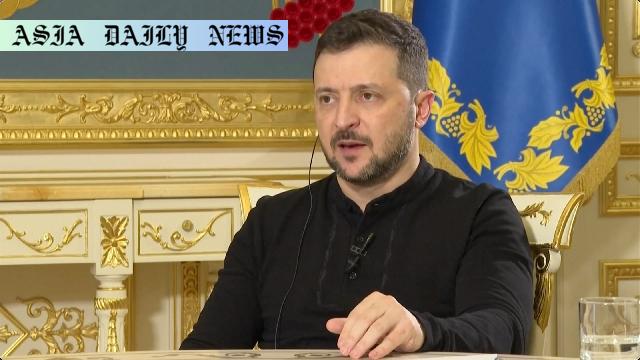Ceasefire: Zelenskyy calls for immediate, full, and unconditional ceasefire, rejecting Russia’s May 8 truce plan as inadequate.
Zelenskyy has rejected Russia’s proposed May 8 ceasefire plan.
He emphasizes the need for a full, unconditional, and 30-day truce.
Zelenskyy calls for global unity to facilitate peace and reject manipulation.

Introduction: Russia’s Proposed Ceasefire and Ukraine’s Response
In recent days, the global spotlight has once again been fixed on the ongoing conflict between Russia and Ukraine. The issue at hand stems from Russian President Vladimir Putin’s unilateral announcement of a three-day ceasefire set to begin on May 8. The Kremlin has heralded this symbolic pause in hostilities as a commemoration of the 80th anniversary of the Soviet Union’s victory over Nazi Germany. This proposal, however, has elicited a dismissive yet urgent response from Ukraine’s President Volodymyr Zelenskyy, who has characterized it as inadequate and disingenuous.
Zelenskyy’s Vision: A Meaningful Ceasefire
President Zelenskyy has voiced his disappointment with Russia’s proposed ceasefire, calling it insufficient to provide meaningful respite for the people of his nation. Speaking via social media, Zelenskyy emphasized the paramount value of human life over ceremonial observances, stating that a three-day ceasefire tied to historical anniversaries falls drastically short of resolving the crisis. He instead called for a minimum month-long truce, one that is immediate, unconditional, and marked by genuine commitment rather than political theatrics.
A Broader Vision for Peace
Zelenskyy’s message resonates far beyond Ukraine’s borders. His rejection of the three-day ceasefire underscores a broader vision for lasting peace, rooted in swift international collaboration. The Ukrainian President highlighted his country’s readiness to engage with global partners to establish secure and peaceful conditions, emphasizing that Ukraine has never sought conflict. He also pointed to the continued manipulation perpetrated by Russia on the global stage, which serves to undermine genuine efforts for reconciliation and security.
The Broader Implications of Russia’s Strategy
Russia’s proposed ceasefire has drawn criticism not only from Ukraine but also from various international observers. Critics argue that the timing and symbolism associated with the ceasefire—coinciding with Russia’s Victory Day—reflect a strategy aimed at controlling the global narrative rather than prioritizing humanitarian considerations. By calling for a longer and immediate truce, Zelenskyy highlights the need for action that is less performative and more aligned with the suffering endured by civilians in war zones.
Conclusion: Zelenskyy’s Call to Action
As the conflict continues to strain international relations and destabilize the region, Zelenskyy’s insistence on a meaningful truce serves as a rallying call for international solidarity. He urges allies and global institutions to rise above political manipulation and focus instead on the shared objective of enduring peace. His response reiterates the importance of prioritizing human lives over symbolic gestures and signals a stronger resolve for defending Ukraine’s sovereignty.
Commentary
Understanding Zelenskyy’s Standpoint
President Volodymyr Zelenskyy’s decision to reject Russia’s three-day ceasefire proposal reveals his emphasis on substantive and genuine strides toward ending the ongoing conflict in Ukraine. By highlighting the insufficiency of a brief truce, Zelenskyy has amplified the urgency of global action in alleviating the devastating human toll of war. His stance reflects a clear understanding of humanitarian priorities over ceremonial gestures, reminding the world that peace must be functional, not symbolic.
Challenges in Achieving a Meaningful Ceasefire
The current crisis underscores the complexities of achieving constructive dialogue and compromise between nations entangled in conflict. Zelenskyy’s demand for a full, unconditional ceasefire is not merely an emotional appeal but a logical critique of Russia’s strategic messaging. However, achieving a 30-day truce will require more than moral declarations; it necessitates coordinated international pressure, diplomacy, and possibly even the imposition of consequences on parties that eschew progress toward peace. Peacebuilding efforts, therefore, hinge heavily on fostering transparency, trust, and accountability.
The Need for Global Unity
As the Ukrainian President argues for stronger international collaboration, the role of global institutions and individual nations becomes critical. Zelenskyy’s commentary reflects the broader context of global responsibility in mitigating conflict. This echoes the need for international actors to remain vigilant against manipulation and to reposition their efforts towards alleviating civilian suffering. In rejecting Russia’s ceasefire offer, Ukraine has sent a clear message: cosmetic measures cannot substitute for comprehensive solutions.
Concluding Thoughts
Zelenskyy’s rejection paves the way for a broader conversation about authenticity in peace efforts. By refusing to settle for half-measures, he has reaffirmed his commitment to the values of dignity, security, and sovereignty. This moment marks an opportunity for the international community to reassess its strategies and work towards a meaningful resolution that prioritizes the well-being of the people most affected by the crisis.


